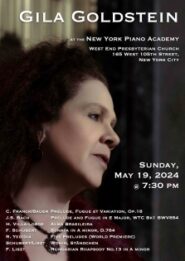American Classical Orchestra shoots for the stars with a heavenly “Jupiter”

Early music performances are often proving grounds in a way that goes beyond just the idea of a concert. Even though the concept has been around for decades, there are still interpretive ideas to test out and, even more, previously lost or long-neglected works to bring back to life.
The American Classical Orchestra, under artistic director Thomas Crawford, has been doing both for decades. The team wrapped up its 39th season in Alice Tully Hall Wednesday night with a concert that combined a sense of maturity about period performance practice with an offbeat notion about discovery and programming. The latter was interesting at least and on balance this was a fine concert.
In fact, this was as good as this orchestra has sounded to these ears. Everything was played at a high level and in an unfussy, musical way that emphasized the music rather than the technical details of how the ensemble was approaching it. That was as true for the oddball pieces, Johan Daniel Berlin’s Concerto à 5 in A Major and William Herschel’s Oboe Concerto No. 1, as for the genuine masterpieces, C.P.E. Bach’s Symphony in B minor and Mozart’s Symphony No. 41.
Crawford gave the program the title “Astronomical,” which he revealed in his lively and personable introductions as coming after the fact, a way to string together the “Jupiter” symphony with the other works. Mozart never gave his final symphony that name, of course, it came later and referred to the ancient Roman god. But, it made a quick connection to Herschel, who was an important astronomer as well as an unimportant composer. As for Berlin, a Norwegian who made small contributions to science, and Bach, well, it seemed Crawford just wanted to play those pieces.
Berlin’s concerto served as a useful warmup. A string concerto with concertmaster Jessica Park ably playing the lead and Crawford at the harpsichord, it is a smoothly crafted example of the genre, like Corelli without the vital details.
The strings had a good balance of precision and substance in the piece, like raw silk with both finesse and grain, and balance became the watchword for the concert. This music, especially Bach’s willful, characterful composing, is easy to exaggerate for effect, and the Symphony in B minor was sane, clear-eyed, accepting the sudden juxtaposition of ideas as sincere and matter-of-fact rather than anything merely eccentric. The younger Bach was a pioneer of expression and form, and it was a pleasure to hear this performance.
Herschel, on the other hand, was an eccentric, at least in this concerto. The highlight was oboist Gonzalo Ruiz, playing his baroque style instrument with an enticing warm, nasal, piping tone. He got the most out of the limited solo passages in the middle slow movement, but for a concerto the part Herschel wrote is paltry. The main feature of the piece is a bizarre, hectic bass line that opens the work and runs through the first movement and, if anything, seems like the threat of invasion from outer space. Better to remember Herschel as a great telescope maker and president of the Royal Astronomical Society.
The “Jupiter” symphony, after intermission, was superb. Crawford’s sense of balance and proportion brought out everything in the music and opened up great verve in the orchestra. The strings had excellent intonation and attention to detail, with fine and clear differences between legato and staccato articulation within each phrase. They also had a feeling of weight and width, and the balances with the woodwinds and brass within were terrific.
As were dynamics, which were expertly judged and marked out the importance of each section and their relationships to each other. They also added to the overall expression, especially in the third movement, where the contrast in moods between Minuet and Trio was both simpler and more dramatic than one has heard. The finale was a thrill, the coda building up a glorious feeling of tension and release.
This was a summer-like night on the Lincoln Center campus, and though the Mostly Mozart Orchestra is now left to memory, it felt both right and poignant that another group could carry that mantle with such skill.

